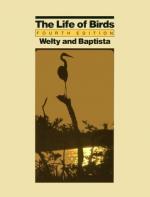|
This section contains 2,748 words (approx. 10 pages at 300 words per page) |

|
The term organismalism was coined by the zoologist W. E. Ritter in 1919 to describe the theory that, in his words, "the organism in its totality is as essential to an explanation of its elements as its elements are to an explanation of the organism." Subsequent writers have largely replaced organismal with the more euphonious organismic as a title for this theory, for the many variations on its main theme, and for some subordinate but supporting doctrines concerning the teleological and historical character of organisms.
Ritter regards Aristotle as the founder and most distinguished exponent of the organismic theory. But Aristotle is also claimed as the father of vitalism, a view that organismic biologists in general reject. In fact, there is considerable affinity between the two schools. They both agree that the methods of the physical sciences are applicable to the study of organisms but insist that...
|
This section contains 2,748 words (approx. 10 pages at 300 words per page) |

|


